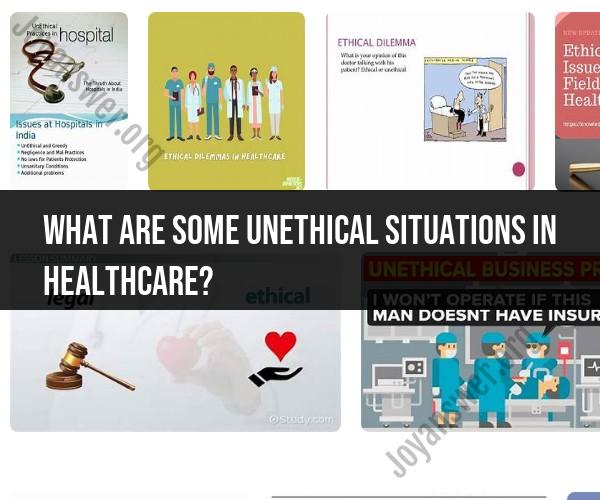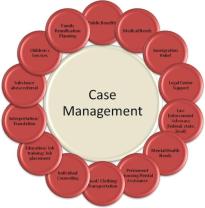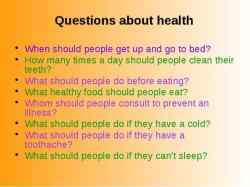What are some unethical situations in healthcare?
Unethical situations in healthcare can arise in various forms, and it's essential to recognize and address them to ensure the highest standards of patient care and ethical conduct. Some common examples of unethical situations in healthcare include:
Patient Privacy Violations:
- Breaches of patient confidentiality, unauthorized access to medical records, or sharing patient information without consent are serious ethical violations.
Overbilling and Fraud:
- Charging patients or insurance providers for unnecessary tests, procedures, or services, or falsifying medical records to maximize reimbursement, constitutes unethical behavior.
Negligence and Medical Errors:
- Failure to provide the standard of care expected in a given situation, resulting in patient harm, is unethical. This includes medical errors, misdiagnoses, or surgical mistakes.
Informed Consent Issues:
- Performing medical procedures without obtaining proper informed consent from patients or failing to adequately explain the risks and benefits of a treatment is an ethical violation.
Conflict of Interest:
- Healthcare professionals must disclose any financial or personal conflicts of interest that could influence their medical decisions. Failing to do so can be unethical.
Patient Abandonment:
- Leaving a patient without care or failing to provide proper follow-up after surgery or treatment is an unethical practice.
Abuse and Discrimination:
- Patient abuse or discrimination based on race, gender, age, sexual orientation, or other factors is unethical and illegal.
Euthanasia Without Consent:
- Performing euthanasia or assisted suicide without clear and informed consent from the patient is a major ethical concern, particularly in areas where such actions are illegal.
Off-Label Prescribing:
- Prescribing medications or treatments for uses not approved by regulatory agencies without clear patient consent or clinical justification can be considered unethical.
Research Misconduct:
- Fabricating or falsifying research data, failing to obtain proper research ethics approval, or conducting unethical experiments on humans or animals are severe ethical violations in medical research.
Inadequate End-of-Life Care:
- Failing to provide proper pain management, emotional support, and palliative care to terminally ill patients is considered unethical.
Truth-Telling and Honesty:
- Withholding information from patients, lying about a diagnosis or prognosis, or providing false hope can be ethically problematic.
Prescribing or Dispensing Placebos Without Consent:
- Administering placebos or ineffective treatments without informing patients or obtaining their consent is considered unethical.
Unnecessary Surgery:
- Performing surgery that is not medically indicated or recommended is a significant ethical breach.
Improper Relationships:
- Developing romantic or sexual relationships with patients is unethical, as it can compromise the objectivity and professionalism of healthcare providers.
It's important to emphasize that ethical dilemmas in healthcare can be complex and challenging. Healthcare professionals are often bound by ethical codes of conduct and must navigate these issues while prioritizing patient well-being. Reporting unethical behavior, seeking guidance from ethics committees, or consulting with legal and ethical experts can be essential steps in addressing these situations. Patients and their families also play a role in advocating for their rights and reporting unethical conduct when they encounter it.
Ethical Dilemmas in Healthcare: Navigating Complex Situations
Healthcare professionals face ethical dilemmas on a regular basis. These dilemmas can arise from a variety of situations, such as:
- Conflicting patient interests: For example, a doctor may need to decide whether to treat a patient who is terminally ill or to focus on the needs of the patient's family.
- Resource allocation: For example, a hospital may need to decide how to allocate scarce resources, such as ventilators, during a pandemic.
- Informed consent: For example, a doctor may need to decide how much information to disclose to a patient about a risky procedure.
- End-of-life care: For example, a doctor may need to decide whether to withdraw life support from a patient who is in a vegetative state.
There is no easy solution to ethical dilemmas in healthcare. However, there are a few things that healthcare professionals can do to navigate these complex situations:
- Gather information: The more information you have about the situation, the better equipped you will be to make a decision.
- Consider all stakeholders: When making a decision, it is important to consider the needs of all stakeholders, including the patient, the patient's family, the healthcare team, and the community.
- Apply ethical principles: There are a number of ethical principles that can be used to guide decision-making in healthcare. These principles include autonomy, beneficence, non-maleficence, and justice.
- Consult with others: If you are unsure about how to proceed, it is helpful to consult with other healthcare professionals, ethicists, and legal experts.
Unethical Healthcare Scenarios: Recognizing and Addressing Issues
Here are some examples of unethical healthcare scenarios:
- A doctor prescribes unnecessary medications or tests in order to generate more revenue.
- A hospital discharges a patient too early in order to save money.
- A nurse provides substandard care to a patient because of their race, ethnicity, or socioeconomic status.
- A healthcare professional falsifies medical records.
- A pharmaceutical company bribes doctors to prescribe their drugs.
If you witness or experience unethical behavior in healthcare, it is important to take action. You can report the behavior to your supervisor, the hospital administrator, or a state licensing board. You can also file a complaint with the Office for Civil Rights.
Ethics in Healthcare: Examining Moral Challenges and Solutions
Ethics in healthcare is a complex and evolving field. Healthcare professionals face a number of moral challenges, including:
- How to balance the individual rights of patients with the needs of society as a whole. For example, a doctor may need to decide whether to quarantine a patient with a contagious disease, even if the patient does not want to be quarantined.
- How to allocate scarce resources fairly. For example, a hospital may need to decide whether to prioritize care for patients who are most likely to survive or to prioritize care for patients who have the greatest need.
- How to balance patient autonomy with the need to protect patients from harm. For example, a doctor may need to decide whether to treat a patient who is refusing a life-saving procedure.
There are no easy answers to these moral challenges. However, healthcare professionals can work together to develop ethical guidelines and policies that help them to make informed decisions in complex situations.
Here are some solutions to ethical challenges in healthcare:
- Increase transparency and accountability. This will help to reduce unethical behavior and improve patient trust.
- Provide education and training on ethics for healthcare professionals. This will help healthcare professionals to identify and resolve ethical dilemmas in a responsible manner.
- Encourage dialogue and collaboration between healthcare professionals, patients, and other stakeholders. This will help to develop ethical guidelines and policies that are fair and equitable.
By taking these steps, we can create a healthcare system that is more ethical and just.













